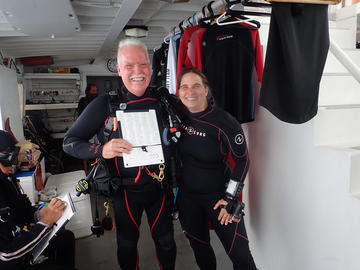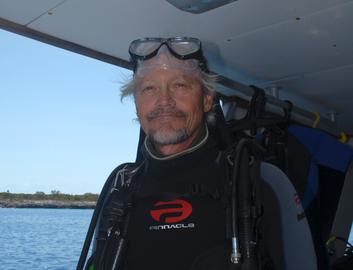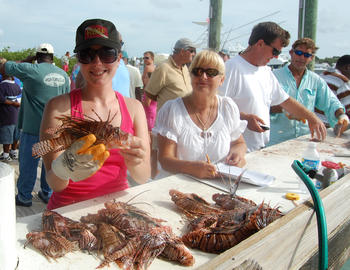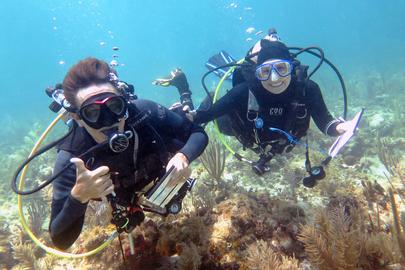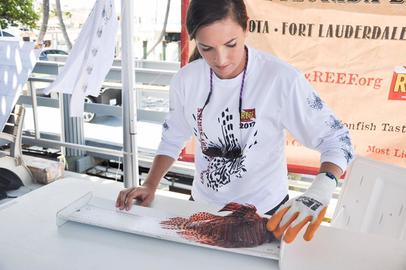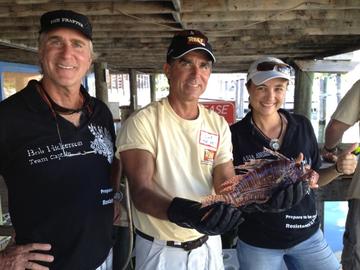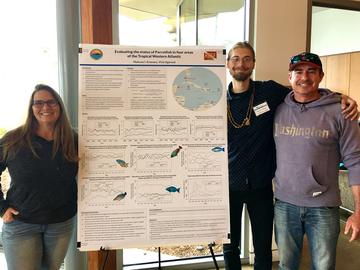REEF members are at the heart of our grassroots marine conservation programs. Over 43,000 divers, snorkelers, students, and armchair naturalists stand behind our mission.
We are excited to honor Dennis Bensen as 2021 REEF Volunteer of the Year. Dennis joined REEF in 2001, and quickly became an avid REEF surveyor as part of the Volunteer Fish Survey Project (VFSP). Through the years, he has earned Expert level surveyor status in both Hawaii (HAW) and the Tropical Western Atlantic (TWA) survey regions, and he is one of the few surveyors who has conducted REEF surveys in most (7) of REEF’s 10 survey regions worldwide. After living in New York for decades, Dennis moved to the Big Island of Hawaii when he retired in 2015.
REEF members are at the heart of our grassroots marine conservation programs. Over 43,000 divers, snorkelers, students, and armchair naturalists stand behind our mission.
This month we highlight Doug Harder (REEF member since 1996). Doug lives in Monument, Colorado, and has conducted 759 REEF surveys. Doug is a member of the Advanced Assessment Team in both the Tropical Western Atlantic and Hawaii. Here's what Doug had to say about REEF:
What inspires you to do REEF Surveys?
We are excited to share the latest publication stemming from REEF's Invasive Lionfish Research Program - "Mobilizing volunteers to sustain local suppression of a global marine invasion," recently published in the scientific journal Conservation Letters.
A tropical fish that calls the West Pacific Ocean home has been documented outside of its native range for the first time, making it Florida’s newest non-native marine fish species. A REEF member spotted a popular aquarium fish, the Onespot Rabbitfish, while scuba diving offshore of Dania Beach, Florida. Within 24 hours of receiving the sighting report, a coordinated effort by Reef Environmental Education Foundation (REEF) and the U.S. Geological Survey (USGS) led to the live-capture of the fish.
As 2020 gets underway, here are a few 2019 highlights from the Volunteer Fish Survey Project, REEF's citizen science marine life monitoring program, as of Jan 5, 2020.*
698 volunteer surveyors conducted and submitted 11,065 surveys in 2019. This number will definitely rise as members catch up on their backlog of data entry.
An additional 1,329 surveys were submitted in 2019 that were conducted in previous years.
This summer, divers and snorkelers from around the country came together to combat the invasive lionfish, vying for over $14,000 in total cash prizes. The series included derby events throughout Florida including Sarasota, the Upper Keys, Fort Lauderdale, and Palm Beach County, as well as Lionfish Culinary Competitions in conjunction with the Sarasota and Palm Beach County derbies.
This summer REEF, in partnership with Divers Direct and SeaGrant Florida, hosted its third annual Lionfish Derby Series. The series included four derbies in Florida (Miami, Fort Lauderdale, West Palm Beach, and Key Largo) and one in Green Turtle Key, Bahamas. The event series was a huge success—in total, 219 participants in 60 teams brought in a total of 2,694 lionfish!
Herbivores play a critical role in balancing coral reef ecosystems. In the Caribbean, this role is mostly filled by parrotfish, surgeonfish, and sea urchins. Parrotfish take their important role one step further in that their constant scraping of algae growing on rock and dead coral results in a lot of poop, which is effectively the nice white sand found on beaches. A single parrotfish can generate up to 700 pounds of sand a year. Parrotfish are also a favorite food fish, and unfortunately their populations have been heavily depleted in many areas.


